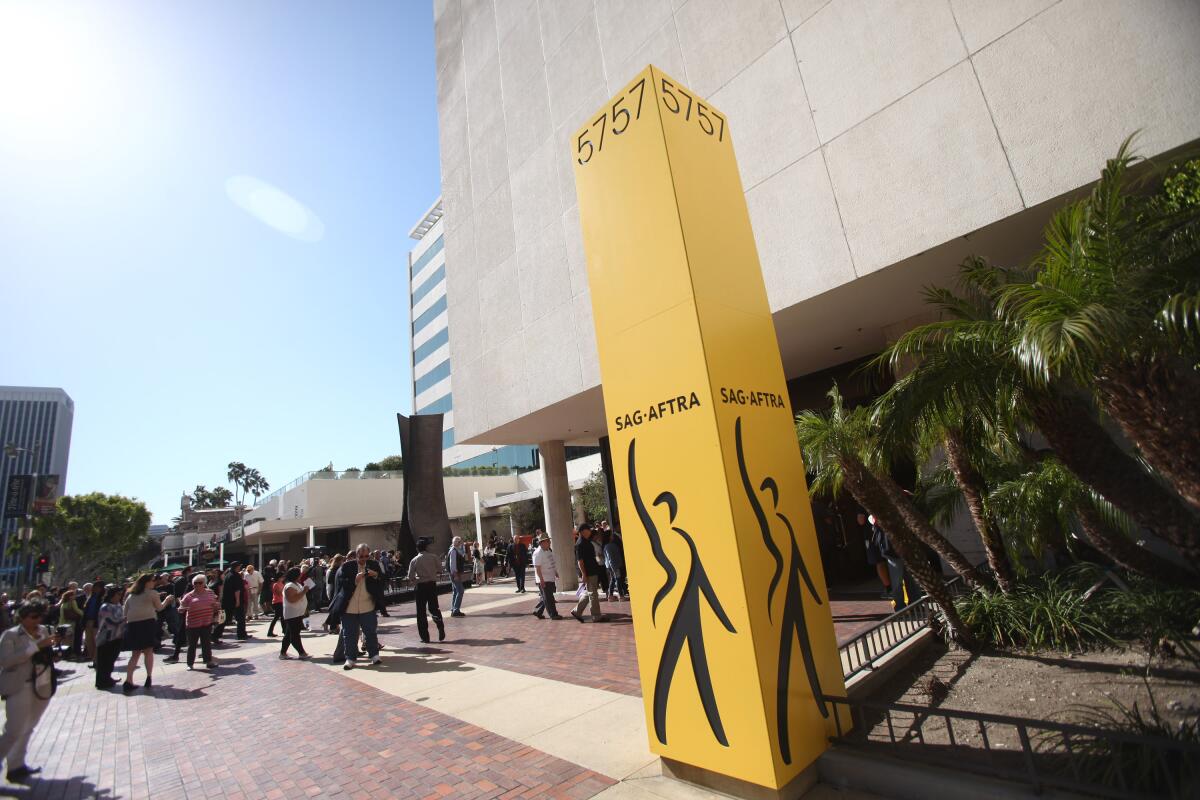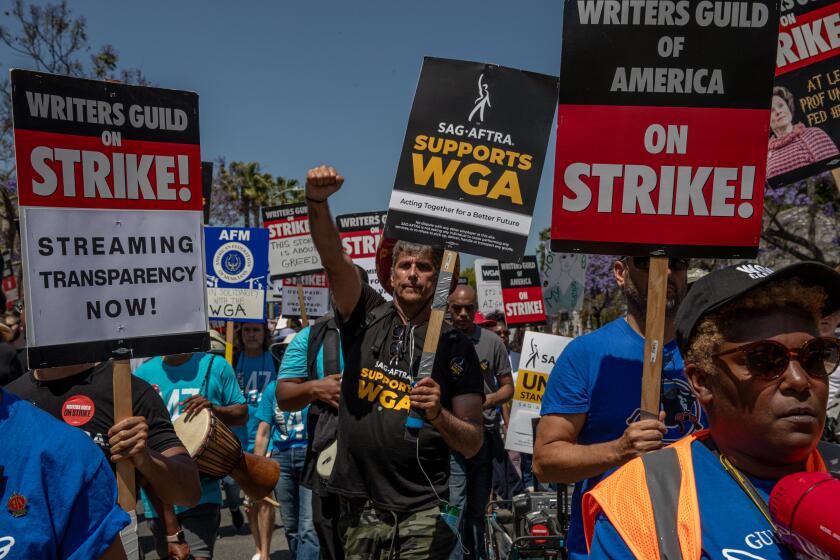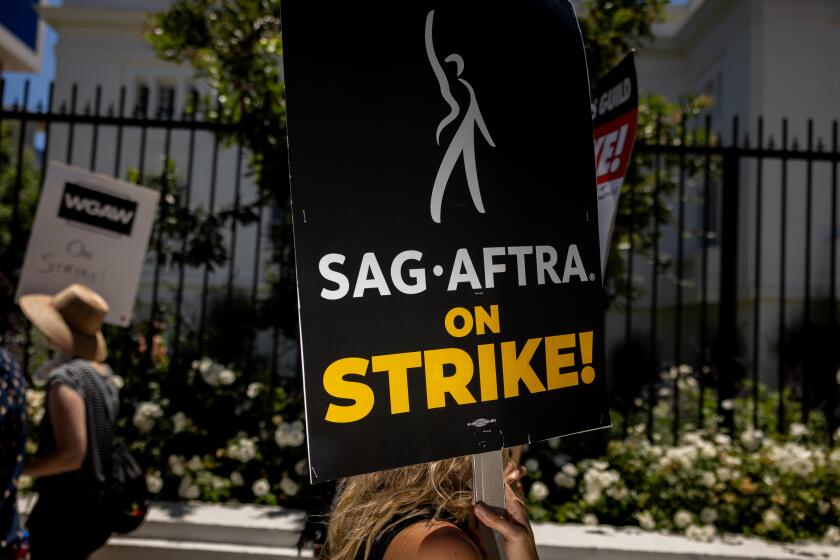SAG-AFTRA and studios turn to federal mediator as strike threat looms

- Share via
Negotiators for SAG-AFTRA and the major studios have agreed to bring in a federal mediator to help resolve a bitter contract dispute, even as the union raised fresh doubts about whether a strike could be averted.
Amid rising tensions, the union said in a statement Tuesday that it had agreed to a “last-minute request” from the Alliance of Motion Picture and Television Producers to tap a neutral third party to help resolve an impasse in negotiations.
But the guild accused the AMPTP of leaking information about the mediation plan before negotiators were made of aware of it. And the union reiterated that it was not prepared to extend negotiations beyond Wednesday night, when the current contract expires.
“The AMPTP has abused our trust and damaged the respect we have for them in this process,” the guild said in a statement. “We will not be manipulated by this cynical ploy to engineer an extension when the companies have had more than enough time to make a fair deal.”
A federal mediator will be present at the negotiations Wednesday, said Greg Raelson, director of congressional and public affairs for the Federal Mediation and Conciliation Service. “FMCS has been monitoring the situation for some time and has been in contact with both the employer and the union,” he said.
Hollywood is once again in the midst of a historic labor battle in which studios are facing a possible strike on two fronts in a protracted fight over new forms of distribution.
Despite some progress in talks, it has become increasingly clear that the sides remain far apart on key issues of streaming pay and other matters and would not be able to secure an agreement by Wednesday night, said sources familiar with the negotiations who were not authorized to comment.
Among the major sticking points, SAG-AFTRA is demanding a significant boost in residual payments from streaming platforms to reflect the success of shows and how those payments are calculated. Studios have balked at a demand that a third-party firm would collect streaming data, and have argued that many of the platforms are not yet profitable.
“We will not be distracted from negotiating in good faith to secure a fair and just deal by the expiration of our agreement,” SAG-AFTRA said. “We are committed to the negotiating process and will explore and exhaust every possible opportunity to make a deal, however we are not confident that the employers have any intention of bargaining toward an agreement.”
SAG-AFTRA has approved a deal from the studios to end its historic strike. The actors were on strike for more than 100 days.
A spokesperson for the AMPTP, which bargains on behalf of the studios, declined to comment.
The AMPTP made the request for assistance from a federal mediator Tuesday after several top Hollywood executives, including Walt Disney Co. chief Bob Iger and Warner Bros. Discovery boss David Zaslav, held a call to discuss the labor standoff and the possibility of a strike happening this week.
Union members last month voted overwhelmingly — by a 98% margin — in favor of giving their leaders authority to call a strike if they couldn’t reach a deal on a new contract.
It’s not clear how successful a mediator would be in resolving the conflict. In 2007, the Writers Guild of America went on strike after a mediator tried unsuccessfully to settle a contract dispute.
The current talks — which began June 7 and were extended to July 12 — are being closely watched. A walkout by SAG-AFTRA would be the guild’s first film and TV strike since 1980 and would add to the turmoil that has roiled Hollywood since writers went on strike against the studios May 2.
SAG-AFTRA has stepped up strike preparations in recent days, posting images of actors constructing picket signs and holding training sessions for its volunteer strike captains.
National Executive Director and Chief Negotiator Duncan Crabtree-Ireland and other union officials this week briefed top Hollywood publicists on the potential effects of a strike.
Times staff writer Meg James contributed to this report.
More to Read
Inside the business of entertainment
The Wide Shot brings you news, analysis and insights on everything from streaming wars to production — and what it all means for the future.
You may occasionally receive promotional content from the Los Angeles Times.













